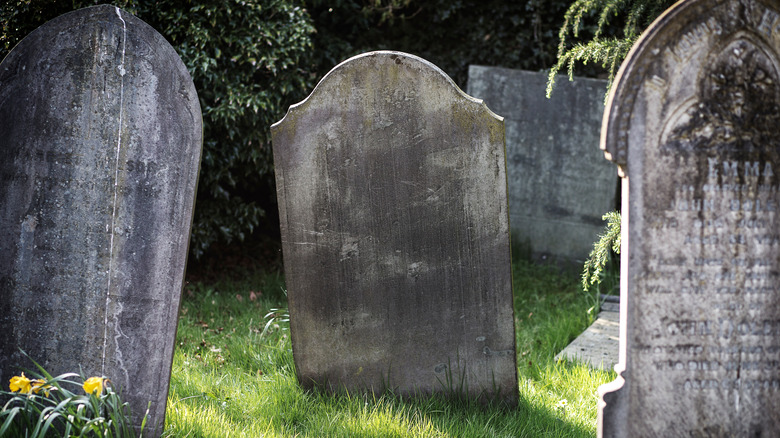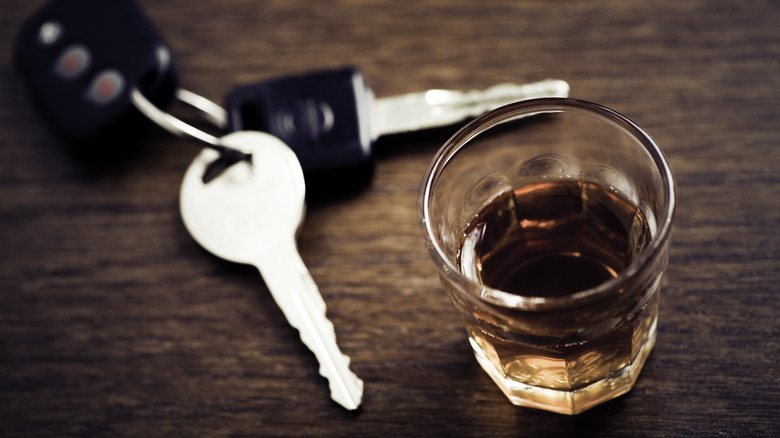This Is The Deadliest Day Of The Week, According To Science
Here's a very, very common scenario: It's getting toward the end of the work week, you're tired, you want to lose your mind, and are considering whether or not to go out. Maybe you check with friends to see what they're up to and go out on Friday, or maybe you decide to stay in on Friday and go out on Saturday. Sunday you've got to be careful because the work week is going to start and you've got to get enough rest, etc., etc. — you know the drill. But more than likely, all things considered, Saturday is going to be the big "activity" day where you do a bunch of errands, catch up on tasks, and, if you're into alcohol, plow through some drinks to cleanse the mental palate. But heads up: Saturday is also the day of the week you're more likely to die. So ... don't do that.
But why Saturday, you ask? The answer is embedded in that little story about a typical workweek. It's also apparent in the data that brought this little tidbit to public light, compiled by the Centers for Disease Control and Prevention (CDC) from 1999 to 2014 and published in an often-referenced article on Live Science. Basically, certain forms of non-natural death — death by car crash and death by drug overdose, specifically — peak on Saturdays. Why? It stands to reason that people engage in more risky behaviors on Saturdays, especially behaviors related to alcohol, like drunk driving.
Increased risky behaviors
Live Science has a full breakdown of the number of deaths on Saturdays vs. other days. Like we mentioned, death by car crash and drug overdose are the highest on Saturday as opposed to other days of the week — at 42,332 and 85,285, respectively. Since there are 52 weeks in a year, that's a horrible 814 and 1,640 people who die every single Saturday from those types of deaths — and that's just in the United States. It's also important to bear in mind that "death by car crash" covers both drunk drivers and those victims hit by drunk drivers.
Regardless, looking at the week on the whole, risk behavior-related deaths swell on the weekends and simmer down in the middle of the week. Death by gun actually peaks on Sunday, not Saturday (Saturday is second). On that note, it would be helpful if we had data on the time of day when deaths occur, because anything that happens after midnight falls on the following day. But unfortunately, we don't.
The Live Science article uses death by heart attack — a natural form of death — as a type of control group. Death by heart attack remains consistent over the week, except for Monday when it peaks. A 2005 analysis from the European Journal of Epidemiology found the same. Whether due to work week existential crises or not is unknown, though it makes sick, sad sense.
More deaths by natural causes
Even though death by gun, death by car crash, and death by drug overdose spike over the weekend, Live Science is quick to point out that the most common forms of natural death remain consistent over time. In other words, even though more people get shot on Sunday, many, many more people continue to die from heart disease, strokes, cancer, respiratory illnesses, diabetes, etc., on any day of the week.
This is true both in the U.S. and globally. The World Health Organization reveals that the top 10 causes of death in 2019 accounted for 55% of all global deaths, all together. To put things further in perspective, about 9 million people worldwide that year died from heart disease, while 200,000 died from car crashes. That means that no matter what, come Saturday you're still more likely to have a heart attack than you are to overdose or get hit by a car. This can be taken as good news, though, because heart disease is at least partially preventable via exercise and diet. And it might go without saying, but things like binging at a bar and then getting in your car to drive home? 100% preventable.
On that note, Responsibility.org has an extensive breakdown of alcohol-related car fatalities per state — and each state's laws. In general, more highly populated states have more deaths. However, states with big cities that have functional public transportation, like New York, have fewer drunk driving deaths for their size.


